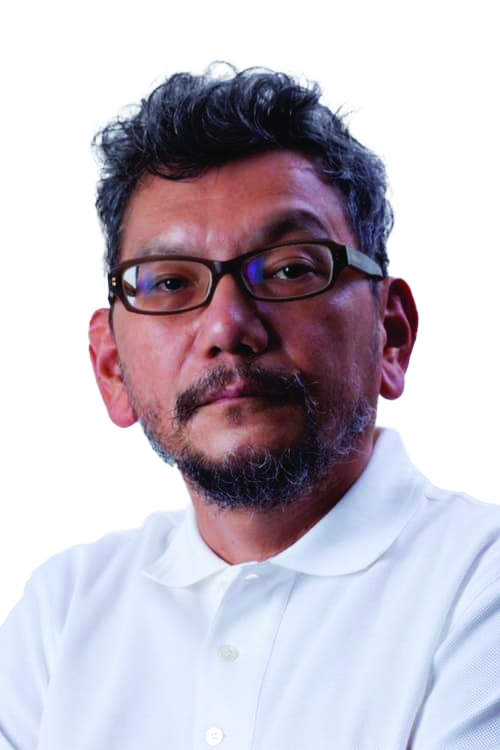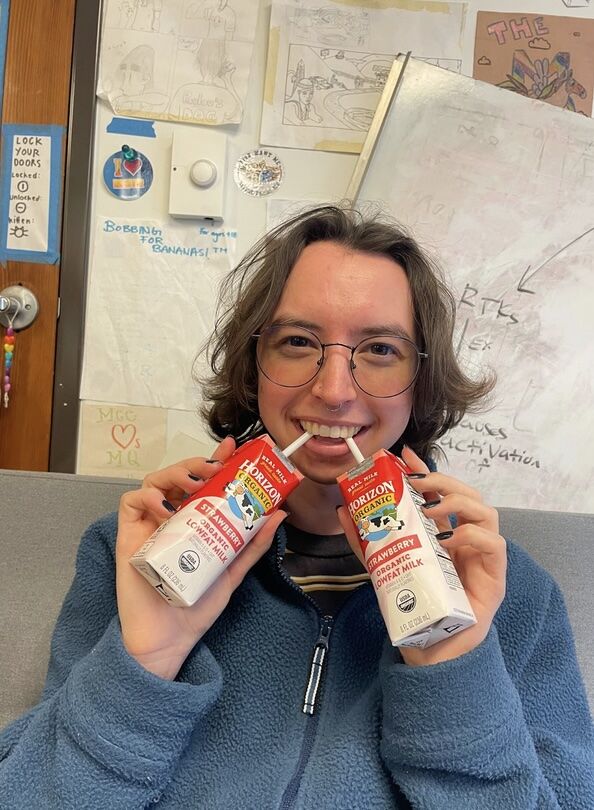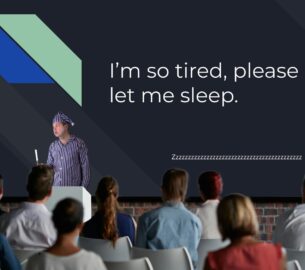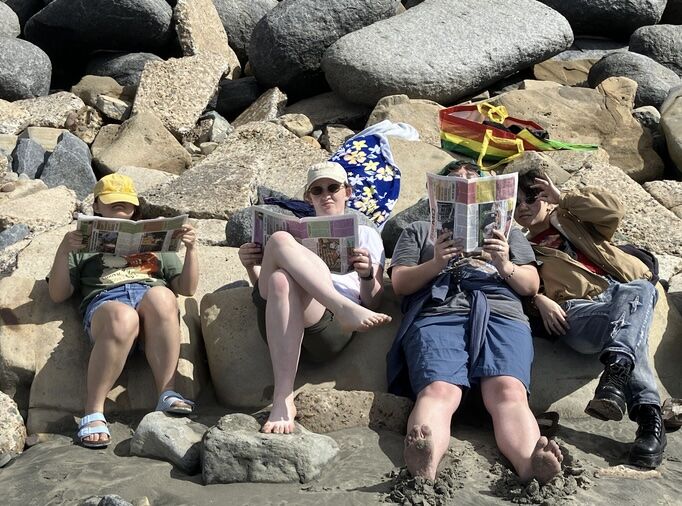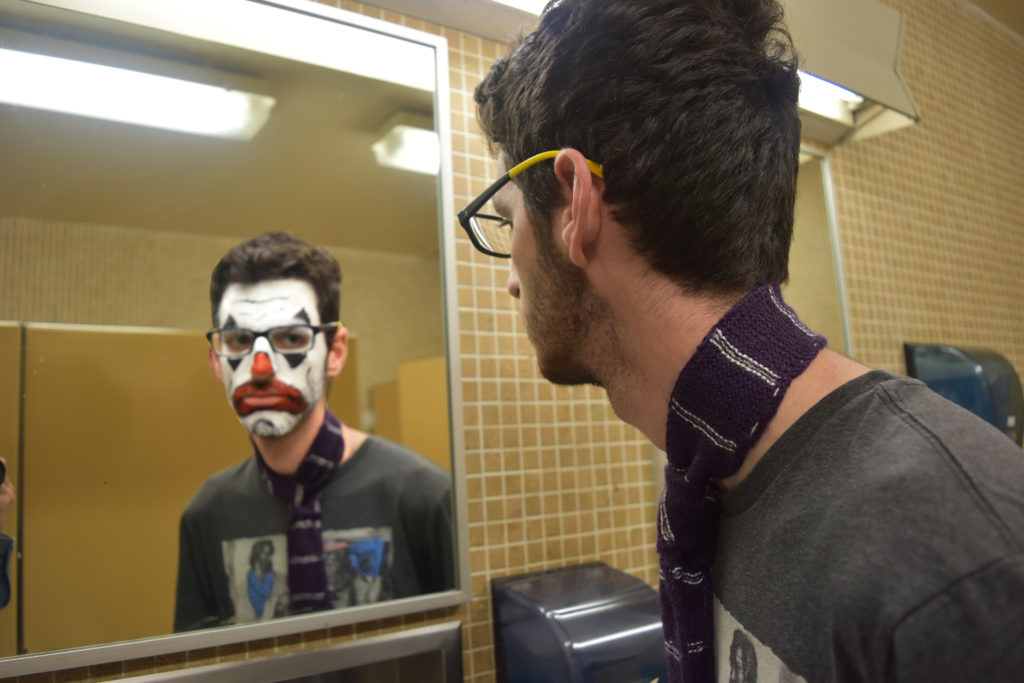
Photo by: Lawrence Lee
A long string of past experiences and subjectively-derived truths had already determined the outcomes of the most recent performance of the Silicon Valley based insult comic Julius Henry. He opened his set last week by asking an unsuspecting audience member, his first victim of the night, where he came from. “South Bay?” Henry asked. “You bro-gramming assholes are all knee-deep in boxed water and traveling spin classes.”
For a large portion of his set, Henry would not let up on the man from Mountain View. Continuing to harp on the man’s profession, his bike culture enthusiasm, and the status of his child’s college fund, Henry spent about 30 minutes all together ranting at the poor man before he figured out what was going on.
“The moment of clarity came so quickly, I was unable to speak or move, yet I remember it so vividly,” Henry explained, describing the experience. “I was just coming out of painting the audience member’s perfect Saturday morning.
“I said, ‘You Mountain View idiots are all the same. I bet you and your corporate-sponsored bike team all race each other down to the local Philz, standing in line looking like a gang of meerkats all trying to get on that free Wi-Fi. One of you will spot a man wearing a pair of Google Glass, then each one will have to try to one-up the others with a story about the latest wearable piece of shitty tech that you’ve had THE EXCLUSIVE PRIVILEGE to beta test on your own children.
“And just as I said that, I noticed a flash of light from the direction of the audience. Then again. It seemed as though every time I moved in some way, the audience member I was laughing at would flicker back. I was two seconds away from speaking about his Brita shower filter when I realized I wasn’t actually staring into the eyes of a sullen, slightly grungy looking wanna-be hipster, but rather looking at a mirror.”
Since that evening Julius Henry has been sitting in the corner of his downtown Mountain View studio apartment, not moving away from the six-foot tall pour-over device he engineered three months previous. He continued his testimony from the same position.
“I don’t know how it happened, but the classical relation of performer and audience, master and student, me and them, was broken. I became aware of what I am and what I am not, how the choices and paths I took in my life led me to this current being.
“I see now that all my life I have never once looked into the black nothingness of the future and stepped into it based off of my own free will. I have always have I stepped back and laughed at those who did. I was only conscious of myself through the relational consciousness of others.
“My revelation took the unfaltering gaze onto myself by myself. My reflection, another being who like me never considered himself, severed the relationality between me and the OTHER, and I became an untethered human whose truth was disconnected from the truths of others.”
The coffee continued to drip in Henry’s apartment, propelled by the ever-present, inescapable, yet unobservable influence of gravity down to the mug on the ground, passing on its way Henry’s poster of Simone De Beauvoir, in the style of Andy Warhol.
“It is clear to me now that I have come not from Mountain View, but rather from nothingness, and only in this newfound consciousness do I know how to proceed in order to not lose sight of the importance of authentically living only for myself.
“I’m gonna start insulting the shit out of little girls. I bet THEY won’t pull out any mirrors that force me to critique my own state of existence from the judgmental eyes of an outsider. Those little punks will never see it coming.”
Barak Tzori is an MQ Alum and was Editor-in-Chief for the 2016-17 school year.

